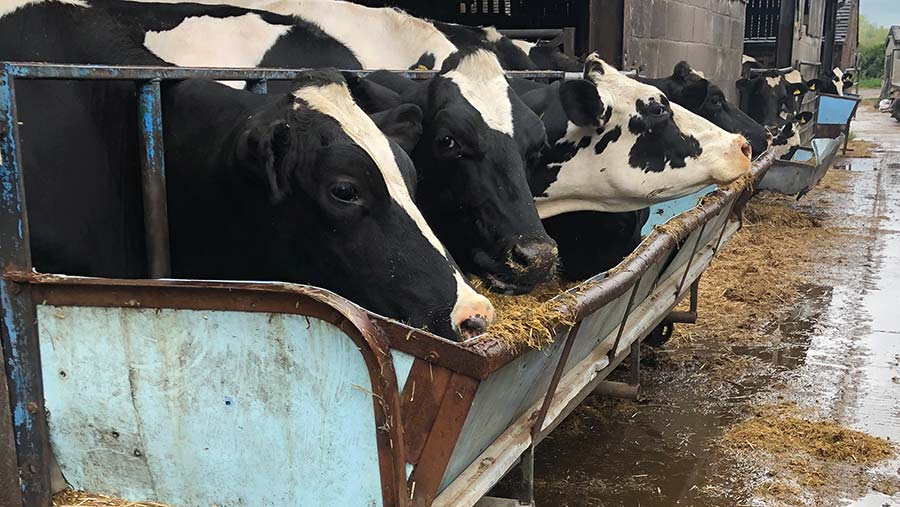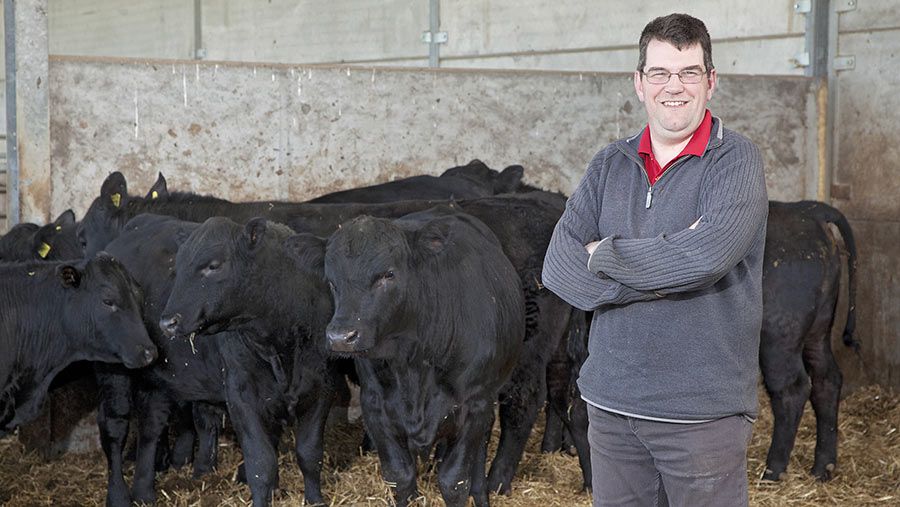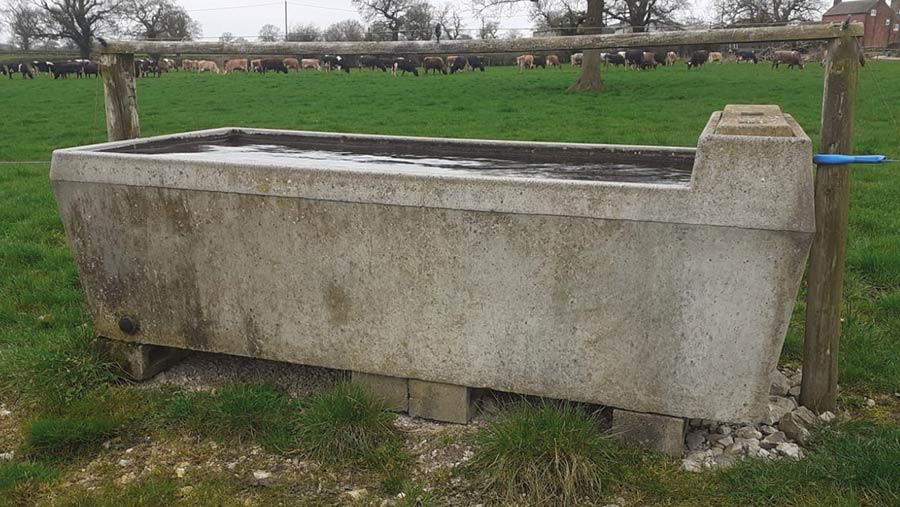How the free bovine TB advisory service is helping farmers
 © TB Advisory Service
© TB Advisory Service The TB Advisory Service (TBAS), is a Defra-funded initiative which gives free, practical advice to help dairy and beef farmers control bovine TB on farms in England.
The TBAS programme has been running since 2017 and provides tailored advice to farms on maximising biosecurity and minimising the risks associated with livestock movements.
It is currently delivered by Farmcare Solutions, a joint venture between VetPartners, Obligace, Independent Vetcare (IVC) and UK Farmcare.
See also: 5 ways to improve TB control in the UK
What the service involves
The first step for farmers wishing to use the service is to contact their own vet or the TBAS directly.
The main part of the service is free one-to-one farm visits in which a trained vet, often the farmer’s existing private vet, visits the farm and completes a farm walk.
The vet and farmer decide which biosecurity advice is useful to improve resilience to TB in herds/flocks that have suffered a breakdown, or how to reduce the risk for an officially TB-free farm.
The farmer agrees to complete four biosecurity recommendations from a risk list compiled during the visit.
This can include advice on how to stop infected livestock coming on-farm, reduce the risk from neighbouring livestock, minimise infection from manure, and restrict contact between badgers and livestock by managing access to feed and water.
Farmers are then tasked with completing at least 75% of the recommendations within six months.
During the first TBAS contract, on-farm advisers carried out 2,280 bespoke farm visits and offered one-to-one advice 2,400 times, either over the phone or at shows and other agricultural events.
Some 71% of visits were carried out on farms with herds that were officially TB-free, putting greater emphasis on improving biosecurity on farms to keep them disease free.
For the remaining 29% of visits, to farms not TB-free, advice included how to reduce the impact reactors can have on a farm business.
Dr Christine Middlemiss, the UK’s chief veterinary officer, said: “Bovine TB is one of the most difficult and intractable animal health challenges that the UK faces today, causing considerable trauma for farmers and costing taxpayers over £100m every year.
“The availability of free and trusted expert biosecurity advice for farming families is essential in reducing the risk of TB infection on farms while also highlighting what action can be taken to stop the re-infection of premises.
“This is why we have committed further funding to the TB Advisory Service and widened its scope, so more farmers can take up this offer and find out how they can benefit.”
Farmers can contact the TB Advisory Service on 01306 779410 or email info@tbas.org.uk.
What farmers say
Feedback from farmers who have completed the service has been very positive.
Farmers said they felt that TB policy was usually enforced on them by government, but TBAS encouraged them to look at what they could do themselves to reduce the risk.
A survey found 96% said the service was excellent or acceptable, and 92% said the recommendations were very useful. Vets also said TBAS gave them a tool to do something positive.
Mark Jelley, a suckler beef farmer from Daventry, Northamptonshire, said: “I found the visit to be very useful and informative; it was interesting to have a new pair of eyes looking at the problems we face and offering practical advice on how to reduce our risks in the future.
“I no longer feel that the presence of TB on the farm is inevitable, and I feel more confident that we can work to reduce bought-in risks as well as that from wildlife vectors.”
Gloucestershire beef farmer Paul Westaway

© Jonathan Page
Gloucestershire beef farmer Paul Westaway says signing up to the TB Advisory Service (TBAS) gave him hope when his herd suffered a sudden outbreak.
Mr Westaway and his wife Kirsty have been tenant farmers of a 70ha Gloucestershire County Council farm on the Herefordshire/Gloucestershire border since 2006.
They farm a pedigree herd of 150 pedigree Aberdeen Angus and Murray Greys.
The farm had been free of TB for 11 years until a routine herd test in July 2020 detected nine reactors.
“As a pedigree breeding farm, our primary business is selling breeding stock. Suddenly, we were shut down. It was horrific,” Mr Westaway recalls.
The farm’s vet, Dominic Alexander, a director of Belmont Farm & Equine Vets, is also a trained TBAS vet and he suggested the Westaways should have a TBAS visit across two sessions.
“We talked about a plan of how to get clear. We had someone to talk to. It was almost like a counsellor,” says Mr Westaway, who is also a board member of Defra’s TB Partnership.
Dr Alexander gave three recommendations:
- Raise the feeding troughs where concentrates are fed to cattle outdoors
- Lift water troughs that were a bit low
- Install wildlife cameras around the barns to check no wildlife were mixing with the total mixed ration (TMR) feed
“From feelings of despair we had hope. which we adopted. All the recommendations were doable. We worked through those.
“Within six months, we were clear [of TB] and we’ve been clear ever since.”
“They were good recommendations. They were very basic, but they’ve made a difference.”
Asked if he would recommend TBAS to other farmers, Mr Westaway says:
“Yes, I would recommend it to any farmer. If you’ve just had a breakdown, or you’re in the middle of a breakdown, 100% use this free service.”
Top recommendations to improve bovine TB biosecurity on farm

© TB Advisory Group
Trained advisers under the TB Advisory Service carry a checklist of more than 100 recommendations which can be tailored and used according to different scenarios encountered on each farm.
The top five recommendations are:
- Install a wildlife camera,
- Use the ibTB.co.uk website to find out the last TB breakdown prior to purchasing cattle,
- Add barriers to the bottom of gates/doors
- Use electric fencing to protect routes of entry and
- Raise or modify feed troughs to deter badgers
Sarah Tomlinson, technical director at TBAS and a farm vet at Kingshay, says: “Raising troughs is a key recommendation.
“TB can live for up to 60 days in water, so if you’ve got a potentially infected badger sharing a water trough in a paddock with your in-calf heifers, there’s a chance to infect all those heifers.
“Whereas, if that badger walks across the field and just happens to urinate, in the worst-case scenario you might get one or two infected, if at all, because TB doesn’t like UV light so on a hot sunny day, it would denature quite quickly.”
Badgers can climb anything, but they can’t jump.
Therefore, the easiest and most cost-effective way to badger-proof an area is to run electric fencing wire at 10cm, 15cm and 30cm.
“You can put that in front of clamp silage, your machinery can still work over it, humans can step over it.
“You can run that around a boundary, such as a calf shed. It’s a really quick, simple way to badgerproof [an area],” says Ms Tomlinson.
The TB skin test can potentially miss one in five infected animals, so the longer a herd has been testing clear, the more you can trust the pre-movement test is truly clear before purchasing cattle, she adds.
